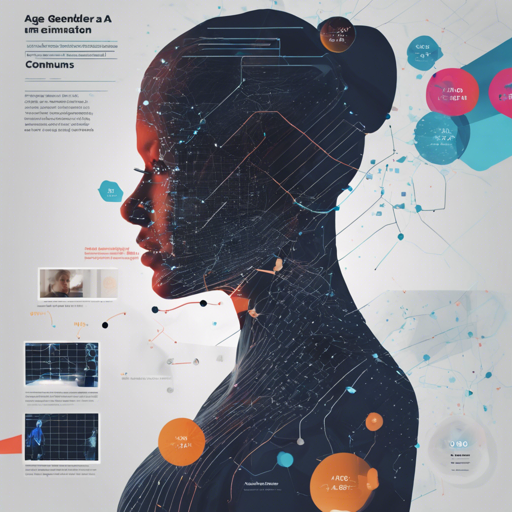Welcome to our comprehensive guide on how to estimate age and gender from face images using a Convolutional Neural Network (CNN) implemented in Keras. Dive into the world of artificial intelligence and learn how to harness the power of CNNs for age and gender estimation.
Overview
This project effectively utilizes the IMDB-WIKI dataset to train a CNN model to estimate the age and gender of individuals based on their facial images. The model leverages advanced techniques including the Adam optimizer and has evolved through several updates to enhance its performance.
Dependencies
- Python 3.6+
- Tensorflow 2.3.0
- CUDA 10.0 & cuDNN 7.6
Usage
Let’s embark on the journey to utilize a pre-trained model and create your own training data!
1. Use Pre-trained Model for Demo
To run the demo using your webcam, execute the following command:
sh python demo.pyYou can also use the –image_dir option to process images from a specific folder:
sh python demo.py --image_dir [IMAGE_DIR]Upon running this command, the trained model will be automatically downloaded to the pretrained_models directory. This model will analyze the images to estimate age and gender.
2. Create Training Data from the IMDB-WIKI Dataset
First, you need to download the dataset. Use the following command to download and extract the data:
sh download.shNext, filter the data and create a CSV file with serialized labels:
sh python create_db.py --db imdbDetails on filtering the dataset can be found in check_dataset.ipynb.
3. Train Model
To train the model using the cleaned dataset, run:
sh python train.pyThe trained models will have checkpoints saved as checkpoints*.hdf5 files.
4. Visualize Training Curve
You can track the training curve using WandB. Follow these steps:
- Create an account at WandB.
- Create a new project (e.g., age-gender-estimation).
- Run
wandb loginon your terminal and authorize. - Run the training script with
wandb.project=age-gender-estimation. - Check the dashboard to monitor training performance!
Explaining the Code: An Analogy
Imagine you are a chef preparing a complex dish. The process consists of various stages, each of which is crucial for the success of the recipe.
- Pre-trained Model: This is like having a perfected recipe at hand, saving you time and effort. By just running the demo script, you can directly use an existing model trained by experts.
- Creating Training Data: Think of this step as gathering the freshest ingredients. You must ensure they are clean (no noise) and labeled correctly (exact quantities) to make a successful dish.
- Training the Model: Just like cooking, it requires practice. The more you train your model with proper data, the better it learns the ‘flavors’ – recognizing age and gender accurately.
- Visualizing Training Curves: This is akin to tasting your dish while cooking to ensure everything is balanced. Monitoring performance helps in making adjustments as needed.
Troubleshooting
If you encounter issues during your implementation, consider the following solutions:
- Ensure all dependencies are correctly installed and compatible with your system.
- Verify that you specified the correct paths for data directories and weight files.
- If errors arise while executing scripts, check for correct syntax and required permissions.
For more insights, updates, or to collaborate on AI development projects, stay connected with fxis.ai.
Conclusion
At fxis.ai, we believe that such advancements are crucial for the future of AI, as they enable more comprehensive and effective solutions. Our team is continually exploring new methodologies to push the envelope in artificial intelligence, ensuring that our clients benefit from the latest technological innovations.
Evaluation
Evaluate your model using the APPA-REAL dataset by executing:
bash python evaluate_appa_real.py --weight_file WEIGHT_FILEThis will provide you with results like Mean Absolute Error (MAE) for both apparent and real age. Aim to improve your model’s performance through continuous training and evaluation.

